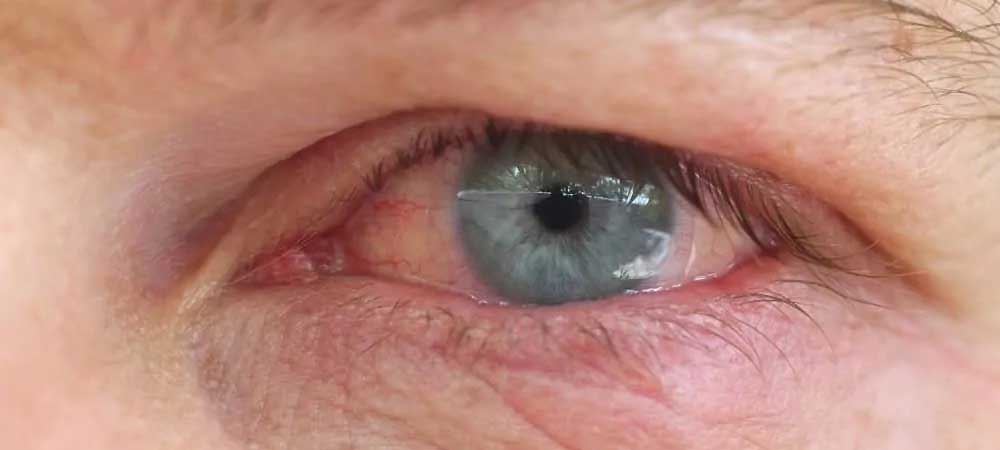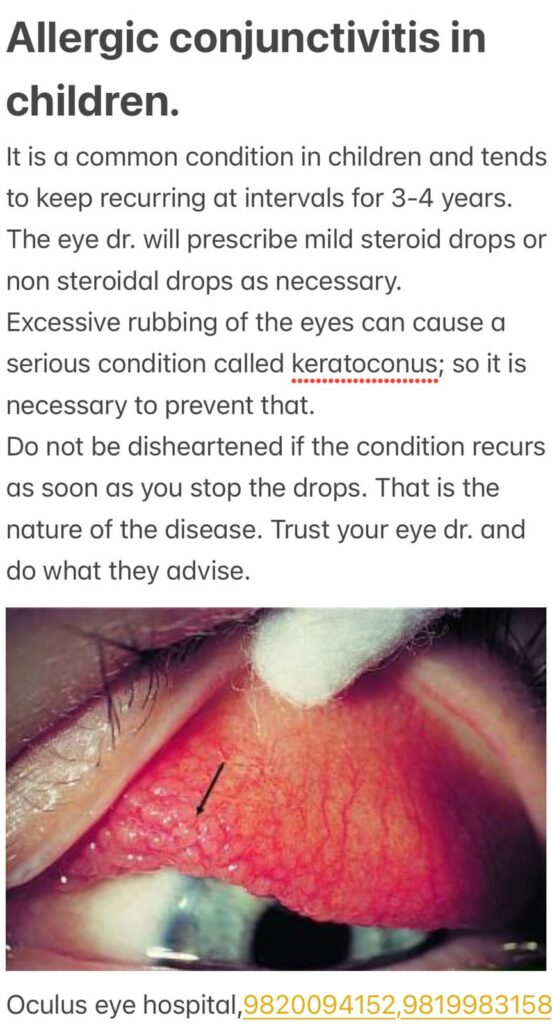- August 19, 2020
- Posted by: ohadmin
- Category: Eye


Allergic conjunctivitis usually happens when a person’s eyes come into contact with an allergen, a substance that makes the body’s immune system overreacting.
The eye becomes sore and inflamed. Symptoms occur because the overreacting immune system makes the body release histamine and other active substances through mast cells. The blood vessels dilate or expand, and this irritates the nerve endings. Allergic conjunctivitis is different from infective conjunctivitis. The causes are different.
Causes
Most people do not react in this way to these substances, but some are more susceptible.
The following allergens commonly cause allergic conjunctivitis: Contact lenses, dust, animal fur, eye drops, make-up, and dust mites, Pollen, as in hay fever.
Symptoms
Symptoms of allergic conjunctivitis include red or pink eyes, pain, itchiness, swollen eyelids, soreness, or burning.
Treatment
Pink or red eyes are a common symptom of conjunctivitis.
The following may offer relief:
- Avoiding the allergen: Keeping the house clean, minimizing soft furnishings which collect dust, and staying indoors when the pollen count is high (if the allergy is seasonal) can help.
- Artificial tears: These eye drops dilute the allergen and help remove it.
- Avoiding contact lenses: These should not be used until symptoms have completely disappeared.
- Refraining from rubbing the eyes: Rubbing can make the inflammation worse. This can be difficult, as it is tempting to rub itchy eyes. Cold compresses and artificial tears can help you avoid rubbing the eyes.
- Cold compresses: Holding a wad of cotton wool soaked in cold water on the eyelid can soothe the eyes.
- Besides this, your Dr. will prescribe appropriate anti-allergic drops to keep the allergy under control. This cannot solve the problem permanently as there is no permanent solution for allergy. So you will have to come back to the Dr. and take another course of eye drops when the allergy comes back. If the allergy is very frequent, she can prescribe some drops for a long period which will reduce the frequency of attacks. If the allergy is frequent, allergy testing and immunotherapy can be considered.
Dr. Jagruti Desai ( M.S. Ophthalmology )

Oculus eye hospital
Tel. 9820094152, 9819983158